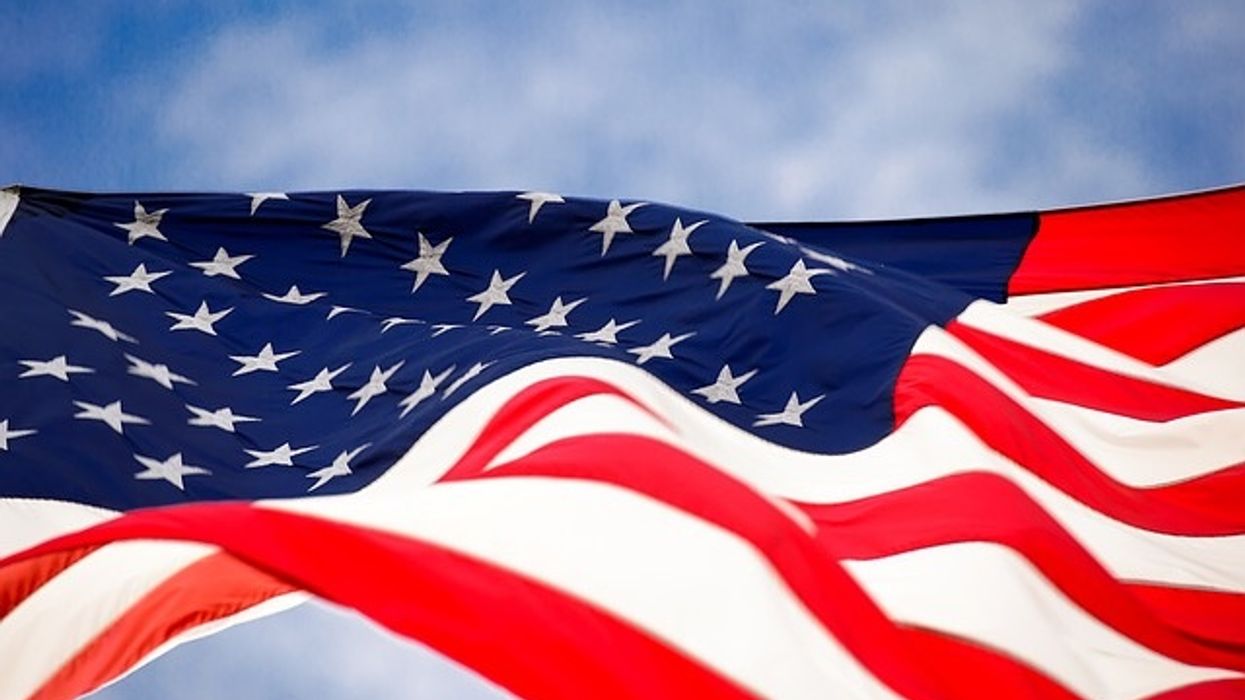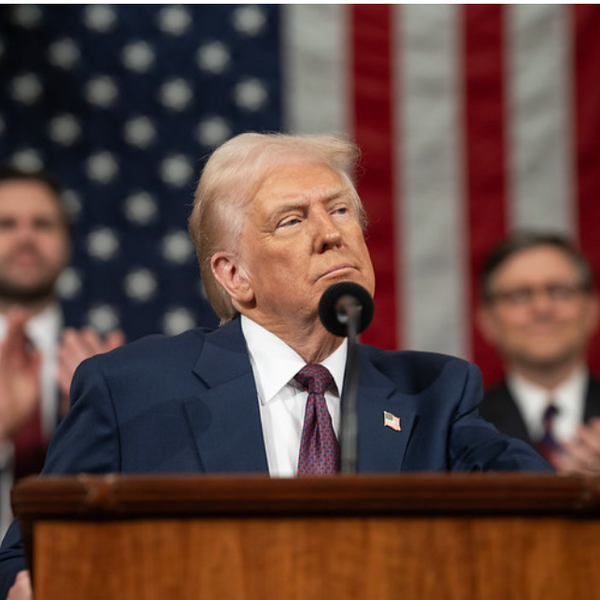Flag-Burning Crackdown Is Just Trump's Latest 'Patriotic' Stunt
At the White House Monday, Trump signed another one of his infamous executive orders, this time announcing, "If you burn a flag, you get one year in jail."
Not so fast.
If the executive order said that, as Yale Law Professor Jed Rubenfeld persuasively argues in The Free Press this week, it would be unconstitutional on its face. Under current law, that is.And isn't that really the point?
In 1989, the Supreme Court held in Texas v. Johnson that the First Amendment protected burning a flag in a political protest. The court the next year reaffirmed that holding in striking down a federal flag desecration statute in United States v. Eichman.
So, no, Trump didn't sign an executive order imposing a one-year jail term for burning the flag. Instead, it tells the Justice Department that if they're considering whether to prosecute an actual crime or civil violation you were engaged in and you were burning a flag, then they should prioritize prosecuting whatever else you were doing. If you burn a flag while committing "violent crimes, hate crimes, illegal discrimination against American citizens," or "crimes against property and the peace," (that is, presumably, something that could get you a year in jail), then you'll get prosecuted for that, even if others who do the same thing without burning a flag don't.
So technically no one gets prosecuted for flag burning. Except, of course, they are, and we know it because the president directed that they should be.
Prosecutorial discretion is a black box in the criminal justice system, largely shrouded, usually respected, but not without limits. Put aside the already shredded tradition of prosecutorial independence from political dictates, there are constitutional limits to what prosecutors can consider in making otherwise discretionary decisions. One of those is obviously race. Another, under basic constitutional doctrine, should be protected expression. If it cannot be prohibited, how can it be a legitimate basis for prosecutorial discretion?
If Trump's prosecutors had simply exercised their discretion the way they know he would like them to, and made an example of flag burners by charging them with other crimes or civil violations, you'd be hard-pressed to challenge the prosecutors' motives for doing so.
But here, by issuing an executive order, Trump has opened up prosecutions that do just that to constitutional challenge — and the order itself to constitutional invalidation. A rather costly stunt, if you look at it that way.
That is surely not how the Trump team is looking at it. The cases that establish "current law" — that is, the Constitution as we know it today — are 35 years old. They were 5-4 decisions. They are binding on the lower courts. They are not, plainly to his mind, binding on Donald Trump.
On the face of it, his executive order avoids a direct confrontation with existing law by the use of the priorities approach, but they are smart enough to know it will be challenged. And they will welcome that. It will be an opportunity to ask the court to overrule the precedents that protect political speech from the suppression of a dictator. This episode may be mostly stunt, but it is only one in a longer-running assault on free speech.











